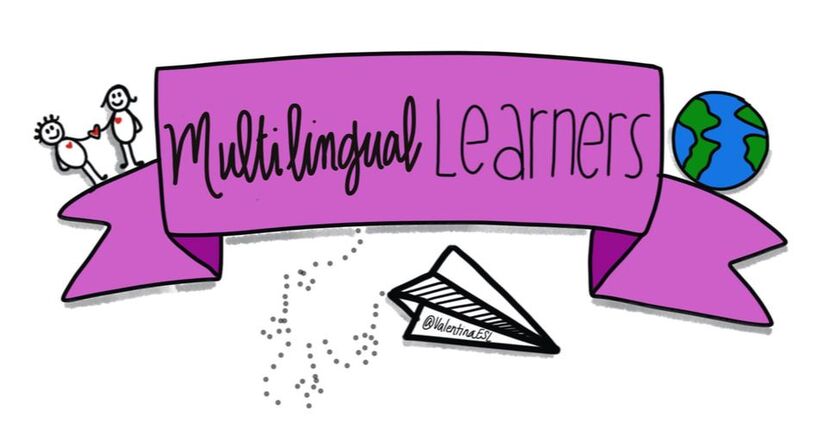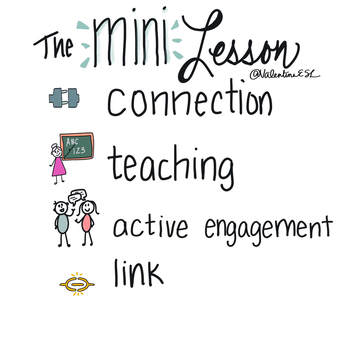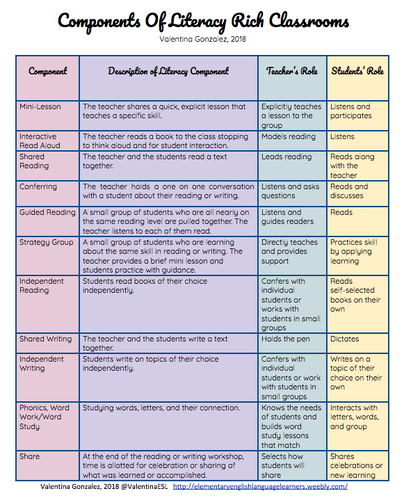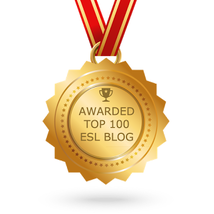|
In the last post the focus was an overview of literacy components. This article will zoom in on just the mini lesson. The goals are to:
The mini lesson is a short lesson at the beginning of both reading and writing workshop (but can be implemented in any content area). It lasts about 10 to 15 minutes and is typically taught in a whole group setting. This is where explicit instruction of a skill, concept, or objective are taught. The mini lesson holds a specific structure.
The mini lesson is a critical component of a workshop classroom. This is where teachers model for students in short, powerful structure. Since the mini lesson is only 10 minutes of instruction, planning one should not take too long. Rather we can invest our planning time in small groups and meeting individual students' needs (and this benefits English learners and ALL students!). English learners benefit from mini lessons that follow a routine, are explicitly taught, and are accessible. Accessible. Reachable. How can we assure that our mini lesson is accessible to ALL our students and not just a select few? After all, if we talk for 10 minutes and our students don't comprehend what we said, then it's a waste of time. We don't want that and our students don't deserve it. To make sure that our mini lesson is 'reachable' or accessible, we can accommodate it by:
CAUTION: It's important to keep the mini lesson mini. Many of us struggle with this part. A couple of ways to keep true to the "mini" in mini lesson are to set a timer and to avoid asking the class questions. Timers (either on a phone or hand held timers) keep us from stretching out parts of the mini lesson and they hold us accountable. Asking students questions during the mini lesson can take us down a rat hole and into a time warp! Don't do that to yourself. The mini lesson is not a place for this. It's purpose is to be direct and teach, not for students to guess and go off on a tangent.
0 Comments
Your comment will be posted after it is approved.
Leave a Reply. |
Categories
All
|



 RSS Feed
RSS Feed
